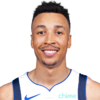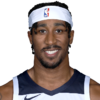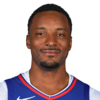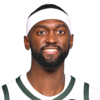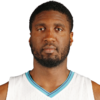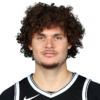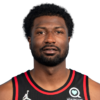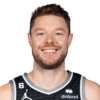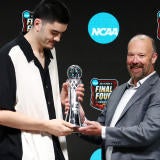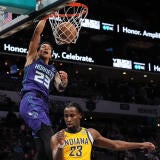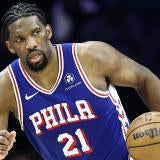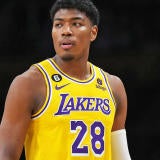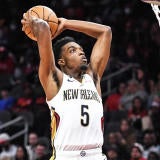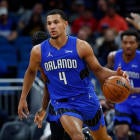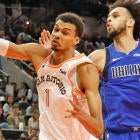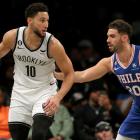Towers 1.0: Sleepers | Breakouts | Busts
"What is a sleeper in Fantasy?"
"How is it different from a breakout?"
"Why are we even here?"
Who among us hasn't gazed up at the heavens and pondered these deep questions before? Truth is, the difference between a "sleeper" and a "breakout" is whatever you want it to be.
I tend to define them like this: A breakout is a player you expect to take a leap to the next level, whether it is from Fantasy reserve to starter, or starter to star; a sleeper is almost never someone you want to draft as a starter. These are the late-round fliers, the guys who can win a championship, but won't burn you if they don't hit.
You might have your own definition, but here are my favorite picks for the coming season, from established veterans looking to rebuild value, to injured potential stars, to overlooked rookies.
When looking at Exum as a Fantasy sleeper, you almost have to throw away what he did as a rookie. Because it really wasn't much. He averaged just 4.8 points and 2.4 assists per game, despite starting 41 of his 82 appearances, and never even really showed flashes of the potential that got him taken No. 5 overall. However, he did get taken No. 5 overall, and presumably still has the same impressive physical tools that made him such a sought after prospects, even after ACL surgery; the long wingspan, athleticism and height could make him one of the most physical dominant point guards in the league. The Jazz smartly acquired George Hill to man the point this offseason, which should allow them to bring Exum along slowly at first. He can come off the bench behind Hill and even play next to him if it becomes clear he deserves a larger role. Chances are, Exum will struggle to make an impact yet again, but given his talent level, it might be worth throwing a late-round pick at him just in case.
It's hard to get too excited about players with limited offensive skill sets, but Hollis-Jefferson could be the kind of player worth making an exception for. He averaged just 9.8 points per game as a rookie for the Nets, but showed off one elite skill, as Hollis-Jefferson would have ranked fourth in the NBA in steal percentage if he had played enough minutes to qualify. With his length and instincts, Hollis-Jefferson could be an absolute stud for Rotisserie leagues, as he averaged 3.2 steals and blocks per-36 minutes last season. Add in 9.0 rebounds and 2.5 assists per-36, and the 21-year-old could have some Gerald Wallace-like seasons in him. He might not have much value in points leagues, but Hollis-Jefferson looks like someone you should definitely be targeting in the later rounds on Draft Day.
Consistency was an issue for Powell as a rookie, but he really impressed when he was going well. Specifically in April, when he exploded to average 15.3 points, 4.4 rebounds and 2.5 assists per game. That was the culmination of a slow build for Powell, however he did emerge as a starter midway through the season, ultimately averaging 10.1 points, 3.5 rebounds and 1.5 3-pointers per game in his 24 starts a year ago. With two high-usage perimeter stars in Kyle Lowry and DeMar DeRozan, there isn't a ton of room for another wing to succeed with the Raptors, but Powell already showed more in a few months than Terrence Ross ever has, and could lock down that starting spot even after a rough playoff run.
Portis didn't get many minutes early on as a rookie, but forced his way into a rotation spot by simply making the most of every opportunity he received. He endedup averaging 14.2 points and 11.0 rebounds per-36 minutes for the season, and even showed range out to the 3-point line, a good sign for a young big man trying to earn a bigger role. The Bulls moved on from Joakim Noah and Pau Gasol this offseason, while only bringing Robin Lopez in, freeing up significant minutes in the frontcourt. Portis may be the fourth big man to open the season, but his combination of shooting range and rebounding ability could earn him a starting job before long.
Don't you roll your eyes at me. Yes, Hibbert has become something of a punching bag over the last few years, and it's hard to defend the effort he put up with the Lakers last season, as he averaged 5.9 points, 4.9 rebounds and 1.4 blocks per game in 81 games. At 30, the best days of Hibbert's career are clearly behind him, and he didn't even provide the kind of defensive numbers that could at least make up for his lackluster scoring and shooting. He signed a cheap one-year deal with the Hornets this season, and he really might not get many more opportunities to turn his career around. Luckily, this isn't a bad spot for him, as Hornets coach Steve Clifford has built an elite defense out of decidedly non-elite big men defenders, most notably Al Jefferson. Hibbert is a better defender than Jefferson has ever been, but he is similarly slow-footed. Clifford's conservative defensive scheme could get the most out of Hibbert once again, and the potential for two blocks per game at a last-round price might be enough to get Hibbert back on Fantasy radars.
The Nets were smart to target LeVert with the 20th overall pick, as he could have been a lottery pick if not for a series of recurring foot injuries. Those injuries obviously cast a pall on his long-term NBA prospects, but if he can get past them, there is a huge opportunity for him to make a difference for the Nets, both this season and beyond. He averaged 16.5 points, 5.3 rebounds and 4.9 assists per game in his final season at the University of Michigan, with solid 3-point shooting and great passing efficiency. The Nets desperately need players with creativity off the bounce on the wings, and LeVert could really stand out if he proves healthy.
You can toss Josh Richardson and Dion Waiters in here too, as the Heat have a ton of production to replace on the wings with the departure of Dwyane Wade, Luol Deng and Joe Johnson to free agency this offseason. Richardson might bring a bit more shooting, and Waiters still carries that lottery pedigree, but Johnson is the one Miami is actually invested in, as they opted to match a four-year, $50 million offer sheet from the Nets in July. Salaries don't always dictate how a team values a given player, but Miami could have let Johnson walk while securing salary cap space for future years, but they invested heavily in the 24-year-old, and he might bring the best combination of all-around skills to the table among the team's three shooting guard options. Johnson is a competent 3-point shooter (37.8 percent for his career), brings some athleticism to the table and even has a bit of playmaking ability, averaging 3.3 assists per-36 minutes. He isn't likely to be a big contributor, but Johnson could emerge as the starter, with a 25-MPG role possible.
Before last April, Hill's future looked exceedingly dim in the NBA. He fell out of the Pacers' rotation upon Paul George's return, after struggling in a larger role the previous season. A wing without much of a jumper, the Pacers didn't even opt to pick up his fourth-year option last fall, choosing to save a few million bucks rather than guarantee Hill's salary. However, something may have clicked for Hill late in the season, as he averaged 12.1 points in 29.2 minutes per game over the team's final seven games, making 13 3-pointers, and then followed that up with another stretch of hot shooting in the playoffs, nailing 11 3-pointers in a seven-game series loss to the Raptors. In that 14-game stretch, Hill sank 24 3-pointers; he has just 99 in 169 career NBA games. If Hill can at least be a threat from 3-point range, he has a big opportunity to lock up a role with the Pelicans, who lavished a four-year, $48 million contract on him this summer. Playing in what should be a high-paced offense, with a chance to swing between both forward spots, Hill might be a consistent jumper away from being Fantasy relevant.
The point guard spot in Philadelphia is one we have targeted over the last few years as a place where Fantasy value can come cheap, but that may be less of a concern this season. The drafting of Ben Simmons means the 76ers may be able to get away with a spot-up shooter like Jerryd Bayless serving as the nominal point guard. However, if the 76ers do opt for a bit more playmaking from that spot, Rodriguez might be the best option, coming off a season where he averaged 6.1 assists per game for Real Madrid, in just 24.2 minutes per game. Rodriguezx is no slouch when it comes to shooting, either, as he knocked down 101 3-pointers at a 40.7 percent clip in 58 games, and could be the team's best all-around option the position this season. His last stint in the NBA didn't end so well, but Rodriguez is a bit older, and could be ready to take advantage of a good opportunity.
The book on Dellavedova has already been written: He is an ace shooter and pesky defender, but doesn't have much in the way of actual skills beyond that. But is that a fair perception? Dellavedova, for his part, tried his hardest to change that perception this summer, as he emerged as one of the better players on one of the best international teams around while playing for Australia in the Olympics. He led the tournament in assists, with 56, and turned the ball over just 11 times in seven games, a continuation of his tremendous efficiency as a playmaker last season. Dellavedova actually took a nice step forward last season overall, upping his per-36 averages to 11.0 points and 6.5 assists. Now, he would be miscast as the primary creator on an NBA team, but with LeBron drawing defensive attention, he was fine as the secondary option. He should serve a similar role for the Bucks this season, but could get close to 30 MPG on a team that desperately needs his skill set, which could push him firmly into Fantasy relevance.







